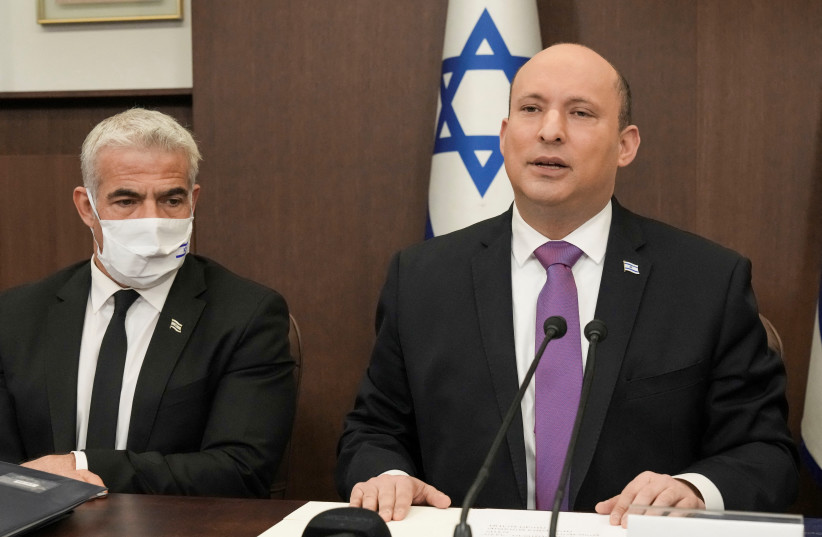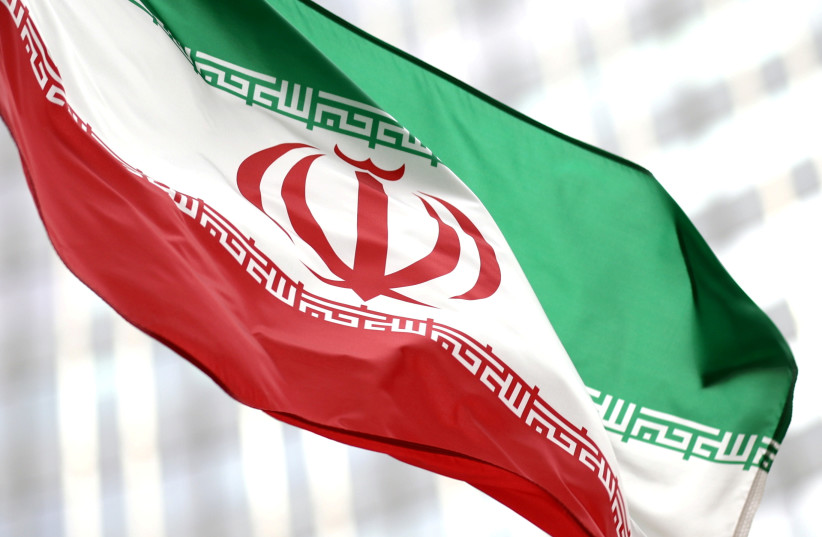“Since the original deal was signed, two things happened: The Iranians advanced their enrichment capabilities very much, and time has passed.”

Nuclear negotiations may soon end with a deal that is insufficiently tough on Iran, Prime Minister Naftali Bennett warned at the opening of Sunday’s cabinet meeting.
“The talks between Iran and the [world] powers on a return to the Iran deal are very advanced,” Bennett said. “It may be that we will see an agreement in a short time.
“The apparent new deal is shorter and weaker than the previous one,” he added.
Bennett explained that the Joint Comprehensive Plan of Action, signed in 2015, was for 10 years, which means returning to it means a deal in which most of its restrictions on Iran’s uranium enrichment will expire in only 2.5 years.
“Since the original deal was signed, two things happened: The Iranians advanced their enrichment capabilities very much, and time has passed,” he said.

In 2.5 years, Bennett said, “Iran will be able and entitled to develop and install advanced centrifuges, without restrictions; stadiums full of centrifuges, according to the agreement.
“In return, the Iranians will, at present, receive tens of billions of dollars and sanctions removed,” he said. “In the end, that money will reach terror in the region. That terror endangers us and other countries in the region – as we saw recently – and will also endanger American forces in the region.”
Israel is prepared to protect its citizens security, on its own, in any scenario, the prime minister added.
Israel has been concerned about the possibility of an insufficiently robust deal with Iran in recent weeks, as the participants in the nuclear talks – China, the EU, France, Germany, Iran, Russia, the UK and the US – say they are drawing to a close.
Western parties to the talks have pointed out that time is running out for the JCPOA’s nonproliferation benefits to remain relevant.
French President Emmanuel Macron spoke with his Iranian counterpart Ebrahim Raisi on Saturday, urging him to agree to a deal, the Elysee said.
In a phone call that lasted an hour and a half, Macron expressed his conviction that talks had come to a solution respectful of all parties’ interests and said Iran should seize the opportunity to preserve the Vienna deal and avoid a major crisis, according to a French presidency statement.
The draft currently being discussed would suspend Iran’s uranium enrichment beyond 5% purity, according to diplomats involved in the talks.
It would also freeze $7 billion in Iranian funds stuck in South Korean banks due to US sanctions, and would have Iran release Western prisoners.
After that, Iran would have to return to the main limits of the JCPOA, such as mostly eliminating its enriched uranium stockpile and reducing enrichment to 3.75%. The US would also waive sanctions on Iranian oil.
However, Iran continued to demand a guarantee from the US that it will not withdraw from the deal again, though US President Joe Biden cannot legally bind his successors to it. In addition, Iran has sought to have Washington lift all Trump-era sanctions, including those for human rights violations and terrorism, and not just those related to the nuclear file.
Iranian Foreign Minister Hossein Amirabdollahian told the Munich Security Conference that indirect talks between Tehran and Washington could succeed “at the earliest possible time” if the US makes the necessary political decisions.
“I would like to emphasize here that we are ready to achieve a good deal, at the earliest possible time, if the other side makes the needed political decision,” Amirabdollahian said in a panel session.
“If the nuclear talks between Tehran and world powers fail in Vienna, Western powers will be responsible for it because we want a good deal,” he said.
When asked whether Tehran was ready to hold direct talks with Washington, Amirabdollahian refrained from ruling it out, saying: “We need to see tangible steps of goodwill by Washington such as freeing Iran’s frozen assets abroad.”
Israeli Defense Minister Benny Gantz told US Vice President Kamala Harris at the Munich Security Conference on Saturday night that “any future agreement must include consistent enforcement by the IAEA in addition to handling the open files in the nuclear program.”
Reuters and Tovah Lazaroff contributed to this report.
https://www.jpost.com/breaking-news/article-697052
Content retrieved from: https://www.jpost.com/breaking-news/article-697052.